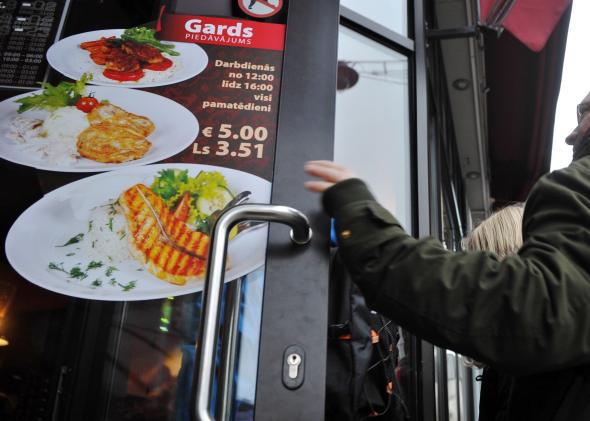The small nation of Latvia (it’s the one sandwiched between Lithuania and Estonia, and they speak a language similar to Lithuanian) is joining the eurozone today which is a good reminder to non-Europeans of the fundamentally political rather than economic nature of the single currency.
The thing about Latvia is that it is, roughly speaking, part of the “western” cultural sphere. Its language is written in a Latin script with diacritical marks. When Latvia Christianized in the 12th and 13th centuries, it was part of the Roman Catholic communion, and due to political links with Sweden it mostly adopted Lutheran Protestantism during the reformation. But after Sweden’s defeat in the Great Northern War in the early 18th century, Latvia ended up incorporated into the Russian Empire. There it stayed for about 200 years until it was overrun by German forced during World War I. Then Germany lost the war while the Russian government collapsed during the Bolshevik Revolution so Latvia became independent in 1920 only to be incorporated into the USSR after World War II. The collapse of the USSR led to Latvian independence, but since Latvia’s political domination by Russia long predated the rise of communism, there was no particular reason for either Russians or Latvians to consider it a settled matter.
But starting today they’re going to use the same money in Latvia as they use in Leipzig and Lisbon and Lyon.
Whether that’s actually practical from a monetary policy standpoint is less important to its proponents than is the fact that integration into the eurozone situates Latvia exactly where Latvian nationalists have been trying to situate it for over a century—in the west and outside the Russian sphere of influence. You see the same thing in Finland which is also eager to definitively reject Russian hegemony, and in Ireland where the eurozone is a sign of freedom from British hegemony. In Germany and France it’s a sign of peace.
It’s more than a little unfortunate that this particular thing has become the symbol par excellence of European solidarity. Currency arrangements turn out to have enormous practical impact, and this particular currency arrangement is not very workable. And yet the project continues to be a lot more robust than I’d have guessed two years ago because of its tremendous political meaning.
